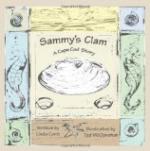THE MARE AND THE MOTOR
Them Todds had got on my nerves. ’Twas Peter’s ad that brought ’em down. You see, ’twas ’long toward the end of the season at the Old Home, and Brown had been advertising in the New York and Boston papers to “bag the leftovers,” as he called it. Besides the reg’lar hogwash about the “breath of old ocean” and the “simple, cleanly living of the bygone days we dream about,” there was some new froth concerning hunting and fishing. You’d think the wild geese roosted on the flagpole nights, and the bluefish clogged up the bay so’s you could walk on their back fins without wetting your feet—that is, if you wore rubbers and trod light.
“There!” says Peter T., waving the advertisement and crowing gladsome; “they’ll take to that like your temp’rance aunt to brandy cough-drops. We’ll have to put up barbed wire to keep ’em off.”
“Humph!” grunts Cap’n Jonadab. “Anybody but a born fool’ll know there ain’t any shooting down here this time of year.”
Peter looked at him sorrowful. “Pop,” says he, “did you ever hear that Solomon answered a summer hotel ad? This ain’t a Chautauqua, this is the Old Home House, and its motto is: ’There’s a new victim born every minute, and there’s twenty-four hours in a day.’ You set back and count the clock ticks.”
Well, that’s ’bout all we had to do. We got boarders enough from that ridiculous advertisement to fill every spare room we had, including Jonadab’s and mine. Me and the cap’n had to bunk in the barn loft; but there was some satisfaction in that—it give us an excuse to get away from the “sports” in the smoking room.
The Todds was part of the haul. He was a little, dried-up man, single, and a minister. Nigh’s I could find out, he’d given up preaching by the request of the doctor and his last congregation. He had a notion that he was a mighty hunter afore the Lord, like Nimrod in the Bible, and he’d come to the Old Home to bag a few gross of geese and ducks.
His sister was an old maid, and slim, neither of which failings was from choice, I cal’late. She wore eye-glasses and a veil to “preserve her complexion,” and her idee seemed to be that native Cape Codders lived in trees and ate cocoanuts. She called ’em “barbarians, utter barbarians.” Whenever she piped “James” her brother had to drop everything and report on deck. She was skipper of the Todd craft.
Them Todds was what Peter T. called “the limit, and a chip or two over.” The other would-be gunners and fishermen were satisfied to slam shot after sandpeeps, or hook a stray sculpin or a hake. But t’wa’n’t so with brother James Todd and sister Clarissa. “Ducks” it was in the advertising, and nothing but ducks they wanted. Clarissa, she commenced to hint middling p’inted concerning fraud.
Finally we lost patience, and Peter T., he said they’d got to be quieted somehow, or he’d do some shooting on his own hook; said too much Toddy was going to his head. Then I suggested taking ’em down the beach somewheres on the chance of seeing a stray coot or loon or something—anything that could be shot at. Jonadab and Peter agreed ’twas a good plan, and we matched to see who’d be guide. And I got stuck, of course; my luck again.




